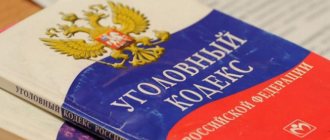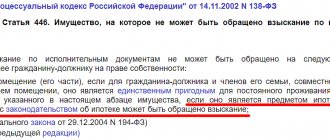- If you are accused under Article 159 of the Criminal Code, do you need a lawyer?
- Possible consequences if accused of fraud?
- What can a lawyer do?
- Cost of a lawyer in cases of fraud
- Frequently Asked Questions When Alleging Fraud
Criminal cases of fraud are initiated regularly and in large numbers. Thus, according to official data from the Ministry of Internal Affairs, during the period from January to September 2021, 227,404 cases of fraud were recorded. Of all types of theft, only theft is the most common. For comparison: during the same period, law enforcement agencies registered 4,775 cases of theft in the form of extortion and 10,189 cases of theft in the form of misappropriation or embezzlement.
Important point
Timely seeking legal assistance from a lawyer specializing in defense in criminal cases of fraud often helps to avoid serious negative consequences.
Get a professional involved?
Not all criminal cases initiated for fraud reach the court. These statistics may indicate the fabricated nature of some cases. Thus, the initiation of cases of fraud is often initiated in order to use the means of criminal proceedings in civil cases or to exert illegal pressure on entrepreneurs. In addition, law enforcement officers often initiate cases of fraud in the presence of deception in the absence of theft, which also inevitably leads to the termination of cases. Meanwhile, even if the entrepreneur is not convicted, criminal prosecution under this article can cause a very serious blow to the business and reputation, as well as cause the collapse of the company.
One of the main areas of our work is the protection of Principals suspected/accused of committing crimes under:
- Art. 159 of the Criminal Code of the Russian Federation (“Fraud”);
- Article 159.1 of the Criminal Code of the Russian Federation (“Fraud in the field of lending”);
- Art. 159.2 of the Criminal Code of the Russian Federation (“Fraud in receiving payments”);
- Article 159.3 of the Criminal Code of the Russian Federation (“Fraud using electronic means of payment”);
- Article 159.5 of the Criminal Code of the Russian Federation (“Fraud in the insurance sector”);
- Article 159.6 of the Criminal Code of the Russian Federation (“Fraud in the field of computer information”).
How to correctly write a statement to the police about the fraudulent actions of an attacker
As such, this document does not have a strictly defined form. Therefore, a statement from the investigative committee about fraud, a sample of which is given below, may be useful.
So, the report of a crime to the Department of Internal Affairs for fraud should begin with the indication of the police department and the details of the applicant.
After this there is a request to bring the guilty person to justice under the relevant article of the criminal code.
Next, in your own words, you should write the circumstances under which the crime occurred, and also indicate the amount of damage caused.
We recommend! Causing harm while apprehending a criminal
The application should be accompanied by evidence of the offense committed (copies of checks, receipts). The police will base their investigation on them. At the end of the application, you must remember to put the date and your personal signature with the initials deciphered.
It is important to understand!
Fraud lawyers are criminal lawyers who not only know the nuances of applying criminal and criminal procedural legislation, but also know the basics of civil and financial law, and understand the peculiarities of the economic activities of commercial enterprises.
Generalist lawyers, as a rule, do not have the necessary experience in defending entrepreneurs in criminal cases, so they cannot always fully provide qualified legal assistance.
Lawyers at Trial Advocate Law Firm have many years of experience defending managers of commercial enterprises and business owners accused of committing fraud. Lawyers with experience working in investigative agencies stand guard over your interests; therefore, we are well aware of all the features of conducting a preliminary investigation into fraudulent charges. Our lawyers use this knowledge to be “one step ahead” of the prosecution and do the maximum for your defense.
You have been accused under Article 159 of the Criminal Code of the Russian Federation - can a lawyer help?
Formally, a firm's unintentional failure to fulfill its contractual obligations is not a crime. For example, companies often do not pay for goods or services due to an unstable financial situation: the counterparty in this case can repay the debt in court or out of court. However, some partners may use this situation to eliminate a competitor or take over a business by accusing the management of the debtor company of fraud.
In turn, fraud refers to the theft of someone else’s property or the acquisition of rights to someone else’s property through deception or abuse of trust. In the absence of a selfish goal, there is no need to talk about fraud.
So is it necessary to contact a lawyer if you are absolutely sure of your innocence? Definitely yes. Relying on a fair trial and one’s own strength in the absence of qualified assistance from a criminal lawyer can lead to serious consequences.
Possible consequences if accused of fraud
You may be sent to a pre-trial detention center
Formally, it is prohibited to place entrepreneurs on fraudulent charges in pre-trial detention centers. In fact, the courts willingly satisfy the corresponding requests of investigators. To end up in a pre-trial detention center means to lose your freedom and the opportunity to run your own enterprise. There are cases when businessmen spent more than a year in pre-trial detention centers.
A lawyer under Article 159 of the Criminal Code of the Russian Federation not only forms a defense position and collects evidence, trying to prove the innocence of the principal, but also, immediately after entering into the case, tries to use legal means to solve the primary task - to exclude the conclusion of the principal into custody or to do everything possible to elect or changing the preventive measure to a softer one, not related to isolation from society.
Data storage media and documents belonging to you will be confiscated during the search
The law obliges law enforcement officers to make copies, but leaves them with a lot of “loopholes” that allow them to confiscate original documents and media. As a result, the company’s activities will be completely paralyzed. In addition, confidential information may fall into the hands of competitors.
A criminal fraud lawyer will promptly arrive at your office, apartment, or other place where the search is being conducted, and will control the search process in order to prevent violations of the law and the rights of the principal. If necessary, the actions of law enforcement officers will be appealed.
Your employees will be called in for questioning
Untrained workers are very easy to confuse and frighten; accordingly, they can, unnoticed, tell investigators information that is compromising you. Particularly valuable employees may even quit and go to competitors.
A lawyer under Article 159 of the Criminal Code of the Russian Federation will prepare employees for interrogation, tell them how to behave and what to say to the investigator. The lawyer will also take part in the interrogation and help eliminate pressure that may be applied during the interrogation. Any attempts to violate your rights will be immediately suppressed.
You will lose your business reputation and lose your partners
Criminal prosecution against the head of a company is a signal to other companies to refuse to cooperate with you. Nobody wants to work with “problematic” counterparties.
Fraud lawyers will make every effort to bring the criminal case/prosecution to an end as early as possible. We will develop an effective defense strategy and collect the necessary evidence base. Your partners will have no reason to terminate cooperation.
You can get up to 10 years in prison with a fine of up to 1 million rubles
Despite the fact that the prosecutor's office approves less than half of the indictments in fraudulent cases, the risk of receiving a guilty verdict is still there, and not a small one. The real deadline puts an end to business.
If a sentence cannot be avoided, the lawyer, according to Article 159 of the Criminal Code of the Russian Federation, will use available legal means to mitigate the punishment. Over the past 10 years, judicial practice in imposing penalties under Art. 159 of the Criminal Code of the Russian Federation has undergone fundamental changes. If in the early 2000s more than half of the sentences in these categories of cases were imposed with a punishment not related to deprivation of liberty, now in the vast majority of cases the courts impose punishment under Part 3 and Part 4 of Art. 159 of the Criminal Code of the Russian Federation in the form of real deprivation of liberty. Even if guilty and a pre-trial agreement on cooperation is concluded, the courts impose punishment in the form of real imprisonment for a period of 4 to 6 years. Some exceptions can be observed in the practice of sentencing in the Krasnodar Territory and in the Republic of Crimea, where suspended sentences under Part 4 of Art. 159 of the Criminal Code of the Russian Federation.
Abuse of trust as a norm of life
Every day our life becomes more complex and varied. There are more and more organizations and individuals wishing to get rich and make a fortune in various ways every day. Because the laws of the era of consumerism take over and dictate their own.
To attract attention, increase purchasing and consumer activity, and increase demand, marketers work who, using the characteristics of the human psyche, influence people, create and place advertising, and attract recognizable and famous people, actors, singers, and athletes for it. For what purpose? The answer is extremely simple
Actors and singers, athletes, are famous and recognizable, they are loved and sympathized with. Increased positive feelings about them increases trust in them. “Such people cannot deceive!” “They can’t advertise or promise something that isn’t true!”
What is this feeling for what these actors, singers, and athletes say? That's right - TRUST! What is Trust?
Trust is confidence in someone’s integrity, sincerity, in the correctness of something and is based on this attitude towards someone.
Comes from the word good faith.
And so, succumbing to exhortations from the TV screen, newspaper pages or the Internet, social networks, people do what famous, respected people advise them. They invest their savings in financial pyramids and buy, well, if useless, medicines and goods. And as a result of this, they are left without money, without the necessary goods. Confused, offended, humiliated. And when they begin to make claims against these most famous people, they answer: “I just played a role!”, “I didn’t know, it’s not mine!” “I have nothing to do with this product, work, service!” Go to the one who organized all this.
But... if it weren’t for you being “recognizable” and “famous”, then people would be suspicious of what they advertise and what they promise.
What do you call what these famous people do? They become voluntary or unwilling accomplices in deception and abuse of trust. And as you know, breach of trust is a crime, at least an unlawful act for which liability is provided.
But for some reason this abuse is happening more and more often.
And legislators, law enforcement officers and law enforcement officers do not take measures to respond to such deception.
Moreover, for the sake of trust, they attract famous people so that people would vote for them, for their parties, their candidates.
What needs to be done to stop this? How to regain trust?
What impact can the participation of a lawyer have on charges under Article 159 of the Criminal Code?
Based on the results of legal assistance in cases under Article 159 of the Criminal Code of the Russian Federation, the following results are possible:
- termination of criminal proceedings/prosecution;
- reclassification of the charge to an article providing for a more lenient punishment;
- application of the most lenient possible punishment;
- application of the main punishment without additional sanction;
- exemption from criminal liability due to the expiration of the statute of limitations;
- deferment of punishment and release from punishment on other grounds;
- an acquittal followed by rehabilitation.
The specific result will depend entirely, firstly, on the factual circumstances of the case, and secondly, on how quickly the suspect/accused seeks help from a fraud lawyer. The best outcome would be to have the criminal case/prosecution terminated before the case goes to trial.
What to do if you become a victim of a scammer
If you have reason to believe that you have become a victim of a fraudulent scheme, you must immediately contact the police with a statement. It is necessary to file a complaint even if you do not have clear evidence - investigators will look for it in the future.
Illegal enrichment and fraud in Article 159 of the Criminal Code of the Russian Federation with comments
The application must describe:
- all the circumstances of the crime;
- the alleged perpetrator;
- the damage you have suffered.
All data is secured with a signature; you must be responsible for your words set out in the claim. If the information provided turns out to be false, you will be held accountable. The information provided will be checked for three days, after which a decision will be made whether to initiate a case on the appeal or to refuse it. You will receive a notification.
The police have no right to refuse to accept your statement, even without evidence. The only reason for refusal may be the situation when the application is anonymous - such claims are not registered. If the application is still not accepted, you must contact the prosecutor's office. The prosecutor will accept your appeal and initiate an inspection of the specified police department. You can also enlist the help of a lawyer who will ensure that the police comply with your rights and responsibilities.
Law enforcement officials themselves can initiate a criminal case without a written request from a citizen. This is possible when they themselves determine information about the scam from sources of operationally searched activities or discovered during the investigation of other cases. The employee who discovers the fact of fraud must draw up a report on what happened, and the prosecutor, having examined the document, issues a decision to initiate proceedings on the fact of fraud.
The period of investigation into fraud lasts from two months to 1 year. During the investigation, the victim and suspect will be repeatedly invited to the investigator. At the end of the investigation, the suspect is asked to familiarize himself with the indictment, and trial is initiated. During the investigation, both the victim and the accused can submit appropriate petitions to the court, put forward complaints, showing disagreement with the actions of the police. All this is regulated by the Criminal Procedure Code.
Cost of a lawyer in cases of fraud
| Name of service | Price |
At the pre-investigation stage | |
| Consultation | from 5,000 rub. up to 10,000 rub. |
| Filing a statement about committing a crime | from 10,000 rub. |
| Legal assistance at the verification stage from | from 60,000 rub. |
| Participation in giving an explanation (survey) | from 25,000 rub. |
At the pre-investigation stage | |
| Protection at the investigation stage | from 250,000 rubles (or from 75,000 rubles per month) |
| Defense at the inquiry stage | from 150,000 rubles (or from 59,000 rubles per month) |
| Representing the interests of the victim | from 120,000 rubles (or from 59,000 rubles per month) |
At the stage of judicial consideration of a criminal case for fraud | |
| Defense of the defendant | from 150,000 rub. |
| Representing the interests of the victim | from 100,000 rub. |
Defense against fraud charges is our specialty!
If you, your friend or relative are suspected or accused of fraud, or a pre-investigation check is being carried out against you for fraud, we advise you to immediately contact a lawyer at Trial Lawyer, and you will be provided with a specialist who has extensive experience in defending this category of cases.
Our work standards that we are proud of:
- lawyers are ready to visit the Principal 24/7, since urgent legal assistance in cases of fraud may be required, including on weekends and holidays;
- our lawyers have many years of successful experience in defending business representatives suspected/accused of fraud;
- we are ready to intervene in a fraud case at any stage, even in difficult situations;
- possibility of monthly payment for a lawyer’s services;
- we provide complete anonymity and confidentiality;
- the long-term impeccable reputation of our lawyers, for which we vouch.
Call at any time - a fraud lawyer is ready to provide timely assistance!
FAQ
Who can be held accountable under Part 5 of Article 159 of the Criminal Code of the Russian Federation?
— Criminal liability under Parts 5-7 of Article 159 of the Criminal Code of the Russian Federation is subject to sane persons who have reached the age of 16. An individual entrepreneur, the general director of a company, a chief accountant, as well as other entities involved in business can be put on trial, provided that the agreements of which the citizen is accused of deliberate non-fulfillment are concluded between commercial organizations or individual entrepreneurs.
What are the penalties for fraud?
— Article 159 of the Criminal Code of the Russian Federation provides for the following main penalties:
- a fine of up to 500 thousand rubles;
- up to 480 hours of compulsory work;
- up to 2 years of correctional labor;
- up to 2 years of restriction of freedom;
- up to 5 years of forced labor;
- up to 4 months of arrest;
- up to 10 years in prison.
The court may also impose additional penalties in the form of a fine and restriction of freedom.
The specific punishment is determined by the court when passing a sentence based on the circumstances of the case, the personality of the defendant, his behavior after the crime, in particular, compensation for damage, admission of guilt and repentance. When assigning punishment, it is important to take into account the position of the victim regarding the need to punish the perpetrator or forgive him, and the severity of the desired punishment.
According to Part 4 of Art. 159 of the Criminal Code of the Russian Federation, the law provides for an unalternative punishment in the form of imprisonment for up to 10 years with or without a fine.
Is it necessary to hire a fraud lawyer?
— The suspect/accused may benefit from the assistance of a public defender. In cases provided for by law, the participation of a defense attorney is mandatory.
Do I need to compensate for damage caused by fraudulent activities?
— Yes, if the court finds the defendant guilty of the crime and satisfies the civil claim brought by the victim, this person will have to compensate the victim for the damage caused. Please note that paying a fine does not relieve you of this obligation. In the case where the accused admits his guilt in committing a crime, the damage should be compensated before sentencing, as this may affect the assigned punishment, in addition, only with full or partial repayment of the damage is conditional early release from punishment possible.
At what amount of damage is it possible to bring criminal liability for intentional failure to fulfill contractual obligations in the field of business activity (Part 5 of Article 159 of the Criminal Code of the Russian Federation)?
— A person may be brought to criminal liability under Part 5 of Article 159 of the Criminal Code of the Russian Federation if the amount of damage exceeds 10 thousand rubles.
At what amount of stolen funds does liability begin under Art. 159 of the Criminal Code of the Russian Federation?
— Criminal liability under Art. 159 of the Criminal Code of the Russian Federation begins with 2,500 rubles. If the amount stolen is less than 2,500 rubles, then the person may be prosecuted under Art. 158.1 of the Criminal Code of the Russian Federation, subject to bringing him to administrative responsibility for petty theft.
Who investigates criminal cases of fraud?
— Criminal cases of fraud belong to the so-called alternative jurisdiction and can be investigated by an investigator of the body that revealed the crime. In most cases, criminal cases under Art. 159 of the Criminal Code of the Russian Federation are investigated by investigators of internal affairs bodies, but often such cases are investigated by investigators of the Investigative Committee of Russia and the FSB of the Russian Federation.
Is it possible to terminate a criminal case for fraud due to the reconciliation of the parties?
— Termination in connection with reconciliation with the victim is allowed only in criminal cases initiated under Part 1 and Part 2 of Art. 159 of the Criminal Code of the Russian Federation, Part 5 of Art. 159 of the Criminal Code of the Russian Federation, also under Part. 1 and 2 tbsp. 159.1-159.6 of the Criminal Code of the Russian Federation. The crime must be completely new, that is, the accused must not have a criminal record for a previously committed crime, otherwise release from criminal liability in connection with the reconciliation of the parties is not allowed.
Should any deception that results in material damage to the victim be classified as fraud?
- Of course no. Fraud is, first of all, theft; it has all the signs of theft indicated in the note to Art. 158 of the Criminal Code of the Russian Federation, including gratuitousness of seizure, illegality and mercenary motive. If there are no signs of theft in the act, then there is no fraud, even if fraud as such took place. Deception or breach of trust is only a method of committing theft, characteristic of fraud. But in any case, first of all, it is necessary to establish whether there was a theft, and only if it exists can one judge in what form the theft was committed.
Can going to court qualify as fraud?
Lawyer Sergei Budanov is accused of attempted fraud. The investigation does not charge him with falsifying documents as an independent element, but insists that the lawyer tried to fraudulently obtain a court decision by keeping silent about certain factual circumstances and falsifying documents.
The defense attorney in this case is the head of the Criminal Law department of Tarlo and Partners, Konstantin Lazarev, who told AG about the details of the case and the shortcomings of the indictment.
Prosecution position
According to the investigation, Sergei Budanov committed attempted fraud on an especially large scale, causing significant damage to a citizen under the following circumstances (the indictment is available from “AG”).
According to the indictment, Sergei Budanov knew that the decision of the Moscow Arbitration Court dated January 12, 2015 in case No. A40-137734/14-45-1156 on the collection of debt under a contract from Goldenberg LLC in favor of CJSC PFC Polychron for an amount of more than 300 million rubles. based on false information about the volume of work performed and materials used. He also knew that the real debt of Goldenberg LLC as of January 12, 2015 was about 125.5 million rubles.
The prosecution believes that, pursuing the goal of “illegal enrichment through the use (implementation) of a court decision granting the right to collect debt in an amount that is inflated relative to the actually existing one” and trying to give the appearance of legality to his actions, Budanov, on behalf of CJSC Perkon, CJSC Veles and the consumer company "Soyuz Credit" entered into assignment agreements with CJSC PFC "Polychron". Under these agreements, the specified legal entities were given the right to demand the fulfillment of part of the monetary obligations, confirmed by the decision of the Moscow City Court of January 12, 2015. Based on the agreements for the assignment of claims, Sergei Budanov initiated the initiation of enforcement proceedings, which were then combined into consolidated enforcement proceedings.
Later, when familiarizing himself with the materials of this enforcement proceeding, Budanov learned that citizen Ch. On September 18, 2015, provided Goldenberg LLC with a loan in the amount of almost 64.4 million rubles, which was transferred to an account opened in Bangladesh. From there, Sergei Budanov learned that on November 23, 2015, on the basis of a loan agreement dated November 17, 2015 and an additional agreement to it, concluded between the same persons, Goldenberg LLC provided a loan to Ch. for a slightly larger amount - 67 million rub. On the day the funds were transferred to Ch.’s account, the latter and Goldenberg LLC signed an act of offset of mutual claims, which terminated the obligation to repay both loans.
Further, according to the investigation, Sergei Budanov in November 2021, “under unknown circumstances,” forged an assignment agreement between Perkon CJSC and California JSC, as well as “at a time unknown to the investigation, under circumstances unknown to the investigation,” an assignment agreement between PA “ Union Credit" and JSC "California". To justify that the agreements are fake, the investigator refers to expert opinions, which concluded that the signatures of the general director of California JSC were made by another person. Under these agreements, JSC California transferred part of the claims to Goldenberg, which Perkon and Soyuz Credit had previously received from PFC Polychron.
After this, Sergey Budanov, on behalf of the legal entities controlled by him - JSC California, CJSC Veles and PA Soyuz Credit - submitted applications for inclusion in the register of creditors of Goldenberg LLC. At the same time, he convinced the arbitration manager Goldenberg to issue a power of attorney to represent the interests of this organization in the courts of Sh., who, according to the prosecution, did not know about Budanov’s “criminal intentions.”
Then Sergey Budanov, as the investigation believes, acting through Sh., applied to the Kuntsevsky District Court of Moscow with a demand to recover from citizen Ch. in favor of Goldenberg LLC funds in the amount of 145 million rubles, 67 of which are the amount of the principal debt under the loan agreement, and the rest is interest for the use of funds and penalties. As stated in the indictment, later Sergey Budanov, through Sh. and personally as a representative of California JSC, knowingly knowing that California’s claims to Goldenberg are illegal and that Ch. has no receivables to this organization, and without challenging the validity the loan agreement dated November 17, 2015 between Ch. and Goldenberg and the act of offset, “acting by deception in a categorical form,” supported the claims of Goldenberg LLC.
The investigation believes that by doing so, the lawyer intended to fraudulently obtain a court decision to acquire the right to Ch.’s property in the amount of over 145 million rubles, which was to go to the bankruptcy estate of Goldenberg LLC and subsequently go to creditors, including “ illegally controlled" by Budanov, CJSC PFC Polychron, CJSC Perkon, JSC California, CJSC Veles and PA Soyuz Credit.
According to the prosecution, Sergei Budanov could not complete his “criminal intent” due to circumstances beyond his control, since on June 3, 2021, the judge of the Kuntsevsky District Court of Moscow issued a ruling to suspend the proceedings in the civil case.
The prosecution ignored that the act of set-off had already been recognized as a void transaction
The defendant's defense attorney, Konstantin Lazarev, explained to AG that in 2015, enforcement proceedings were initiated against Goldenberg LLC, and its property was seized. After this, citizen Ch. issued a loan to this organization in the amount of more than 67 million rubles. Two months later, a second loan agreement for the same amount was concluded between the same persons, under which Ch. received money from Goldenberg LLC. Five days later, the parties signed an act of offset of mutual claims.
According to Konstantin Lazarev, in April 2021, Goldenberg LLC was declared bankrupt (case No. A40-80513/2017), and on June 5, 2021, a court ruling came into force, by which the offset between Ch. and Goldenberg was declared void invalid transaction (case No. A40-147730/2016), and after that, on June 13, 2021, a claim was filed in the Kuntsevo District Court against Ch.
“The investigation accuses lawyer Budanov of deceiving the court and the defendant by filing a claim to collect the debt. The deception was expressed in the fact that Budanov supported the claims, realizing that the judge and the defendant were not aware of the illegality of the claims and the actual amount of monetary obligations of the parties to the dispute. At the same time, the illegality of demands when filing a claim in court must be confirmed by charges of falsification of evidence. No such charge has been brought against Budanov,” the defense lawyer emphasized.
In his opinion, in fact, the principal is held criminally liable for the fact of filing a statement of claim. At the same time, the legal basis for filing a statement of claim was a court decision that entered into legal force, declaring the transaction to offset mutual counterclaims invalid. “In such a situation, the bankruptcy trustee is simply obliged to go to court. At the same time, the failure of the applicant to provide the court with any information is not a crime, since this information was provided by the defendant (victim) Ch. in his response, considering them as his arguments for defense against the brought claim,” noted Konstantin Lazarev. In addition, he added, recognition of the offset agreement as an invalid transaction gives rise to the right of Ch. to “enter” the register of creditors of Goldenberg LLC and receive the debt on equal terms with other creditors.
The lawyer drew attention to the fact that in the event of recovery of the loan amount from Ch., the funds would not go to Sergei Budanov, but to the bankruptcy estate and would be distributed among all creditors in proportion. “Among these creditors are the tax inspectorate and the Moscow City Property Department. My principal is charged with attempted theft of the entire amount stated in the statement of claim,” said Konstantin Lazarev.
According to him, at the moment Sergei Budanov is under recognizance not to leave. His criminal case has been transferred to the Kuntsevo District Court; to date, only a preliminary hearing has taken place.
Lawyers criticized the prosecution
Partner at Bartolius Law Firm Sergei Grevtsov believes that Sergei Budanov is being prosecuted for organizing an attempt to collect receivables in court. “The plot of the criminal case is shocking in its content, since this is a standard tactic for the work of creditors and the arbitration manager in a bankruptcy case, and one of the institutions of such a procedure is the collection of receivables in the event that they were not repaid or were offset in violation of the priority order of satisfaction of claims creditors,” the lawyer commented on the indictment.
Sergey Grevtsov believes that simply going to court with an application to recover funds, regardless of the grounds, cannot be qualified as an attempted fraud. “The actions of the applicant are subject to such qualification only if the court decision satisfies his demands, which are initially based on a knowingly false evidence base and/or information, if the applicant committed actions to mislead the court regarding the reliability of the specified information. This composition can be considered completed only after the funds are actually received by the person who filed the claim in court,” the expert explained.
At the same time, the objective side of the crime, according to him, in this case will include actions to collect the debt (applying to the court, bank, bailiffs, selling property, etc.). “The commented case does not fall under these criteria; the issue of offsetting the loan should have been resolved by the court on its merits when considering the claim for debt collection from the debtor. The victim in this case can only be the defendant, but not the court,” says Sergei Grevtsov.
At the same time, withholding information cannot be considered deception as a method of fraud if it does not entail a distortion of the truth, the lawyer said: “For example, the plaintiff-landlord’s concealment from the court of the date of actual termination of use of the leased premises is not deception. But if at the same time the plaintiff insists that the tenant actually used this premises at a time when the tenant in fact no longer used it, and the plaintiff knew this for certain, then such concealment is already part of the deception.”
He recalled that in the first note to Art. 158 of the Criminal Code of the Russian Federation states: theft can be committed in favor of third parties. “Therefore, even Robin Hood was a criminal, despite the fact that he distributed the stolen funds to the poor. For criminal law, the motives for receiving funds in relation to third parties are not of particular importance, if such motives are not a mandatory qualifying feature. In this case, there is self-interest, but it is not criminal in nature, but legal, and its purpose is to obtain funds under a legal claim,” the expert said.
Answering the question from “AG” about whether it is not the crime itself that can last, but the attempt to commit it, Sergei Grevtsov, Fr.
At the same time, no matter how absurd it may sound, the further the defendant goes, the greater the likelihood of termination of the criminal case for lack of corpus delicti at the stage of judicial investigation, since he may eventually have judicial acts that have entered into legal force, which will prove the legality of the actions of all persons involved in the bankruptcy case, the lawyer noted.
Lawyer of MCA "Knyazev and Partners" Alexey Serdyuk noted that the situation that became the basis for the filing of charges of attempted fraud is described in the indictment in a rather complex and confusing manner. “Unfortunately, practice knows cases when representing the interests of a client in court in a civil dispute develops into criminal cases. But there are also examples where acquittals are made in such cases. Due to the specific nature of the act, the elements of fraud are extremely flexible and allow us to cover a large number of situations relating to the acquisition of property or rights to such property, including actions to go to court to recover funds,” the lawyer explained.
According to him, in this case, based on the indictment, the actions of filing a claim should be considered directly aimed at committing the incriminated act, and all the actions indicated before the filing of the claim relate to preparation for the crime and are used by the investigation to describe the presence of intent. “After filing a statement of claim, the court may not accept it for proceedings or, having accepted it for proceedings, suspend or terminate the proceedings in the case, as well as refuse to satisfy the claims. Following the logic of law enforcement agencies, in each of the described cases the person could be charged with attempted fraud,” says Alexey Serdyuk.
The status of a lawyer in a similar situation allows you to use additional legal justification
Lawyer of AK SanctaLex Pavel Geiko believes that going to court with an unfounded claim may be part of the objective side, including fraud. However, the court, according to the expert, cannot be a victim, since it does not own the disputed property.
“AG” asked Pavel Geiko to further comment on the position of the prosecution from the point of view of the possibility of incriminating such an act against a person who has the status of a lawyer. “Under such circumstances, the intention of the accused to appropriate funds due to his clients in the event of a successful resolution of the case has not been proven. A lawyer, by virtue of the nature of his professional activity, acts in the interests of the client and in accordance with Art. 7 of the Law on Advocacy and the Bar is obliged to honestly, reasonably and conscientiously defend the rights and legitimate interests of the principal by all means not prohibited by law,” said Pavel Geiko. The tactics for protecting the interests of clients are chosen by the lawyer himself and are agreed exclusively with his clients. The procedure for a lawyer to receive fees is also in accordance with Art. 16 of the Code of Professional Ethics for Lawyers is determined by agreement of the parties. At the same time, the investigation has not established the relationship between the subjects of the claims and the amount of the fee, the expert noted.
“There can be no talk of mercenary intent in the form of transferring property to creditors, when these creditors are the attorney’s principals, since the purpose of their contacting the lawyer is to obtain assistance in the legal acquisition of this property. Achieving a result that is positive for the client is an integral task of advocacy, but not a sign of a crime,” emphasized Pavel Geiko.








